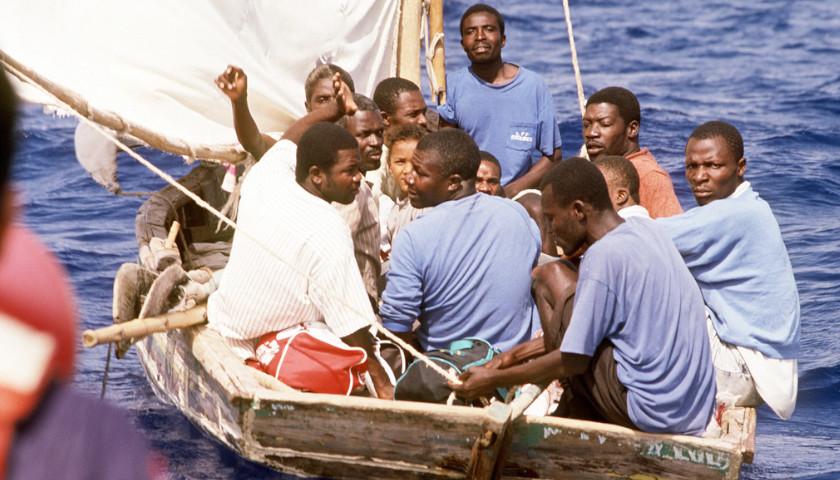by Gelet Martínez Fragela
Florida Gov. Ron DeSantis is mobilizing an air-and-sea fleet along with a company of 250 law enforcement officials to safeguard southern waters against a potential mass Haitian emigration to Florida.
The governor’s decision comes amid a wave of crime and chaos that has swept across the Caribbean country just days after President Ariel Henry relinquished power from Puerto Rico.
The president began using the U.S. protectorate as a recent base of operations while returning from Kenya. Gangs had invaded the main airports in Haiti’s capital city, Port-Au-Prince, and the Dominican Republic has restricted any flights to and from their neighbor, effectively forcing the embattled president into temporary exile.
The president’s resignation came after a joint meeting held between the Caribbean Community (CARICOM), and intergovernmental organization of nations in the area who work together to resolve blossoming crises.
CARICOM chairman and Guyanese President Irfaan Ali, said on Tuesday the next step will be to establish a “transitional presidential council” so “an interim prime minister” can be named.
The U.S. has also stepped up to try and loosen the grip of power maintained by Haitian gangs, which now control 80% of the country. Secretary of State Antony Blinken has said the U.S. has committed another $100 million to the 1,000-strong U.N. security force Kenya is expected to lead on the island, and another $33 million for humanitarian aid.
In the meantime however, the U.S. Embassy in Port-Au-Prince has evacuated all non-essential personnel and warned Americans to leave immediately.
For DeSantis’s part, however, the Florida governor is not trying to quell gang violence or restore law and order.
“For quite some time, the State of Florida has been dedicating significant resources to combat illegal vessels coming to Florida from countries such as Haiti,” said DeSantis in a recent statement. “Given the circumstances in Haiti, I have directed the Division of Emergency Management, the Florida State Guard, and state law enforcement agencies to deploy over 250 additional officers and soldiers and over a dozen air and sea craft to the southern coast of Florida to protect our state.”
Despite DeSantis’s precautionary measures, and a recent stint of 65 Haitians who were located near the Bahamas, there is no indication a mass exodus from the island is about to occur.
Haiti is about 700 miles from Florida, about eight times the distance of Cuba’s northern tip to the Florida Keys.
DeSantis justified the move however, based on the fact that the State of Florida has recently seen a spike in migration from Caribbean islands such as both Cuba and Haiti coming by way of the seas. An estimated 500 Cuban refugees landed in the Florida Keys throughout the month of January.
For now, the state deployment includes members of the National Guard, Florida Department of Law Enforcement, Highway Patrol and Fish and Wildlife Conservation Commission.
DeSantis, a former Republican presidential candidate, and immigration hawk has also pledged to send Florida National Guardsmen to Texas to assist Gov. Greg Abbott in his state measure, Operation Lone Star, to curb illegal border crossings.
“No state has done more to supplement the U.S. Coast Guard’s interdiction efforts,” DeSantis said in a Tuesday press conference. “We cannot have illegal aliens coming to Florida.”
– – –
Gelet Martínez Fragela is the founder and editor-in-chief of ADN America. She is a Cuban journalist, television producer, and political refugee who also founded ADN Cuba.





